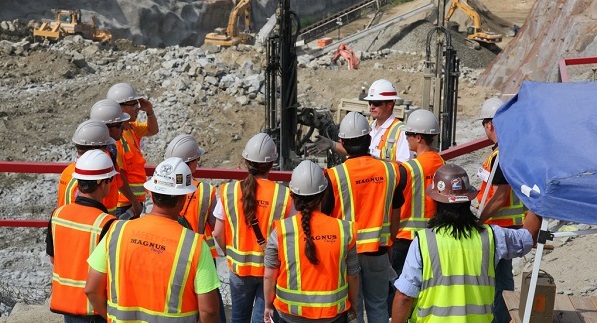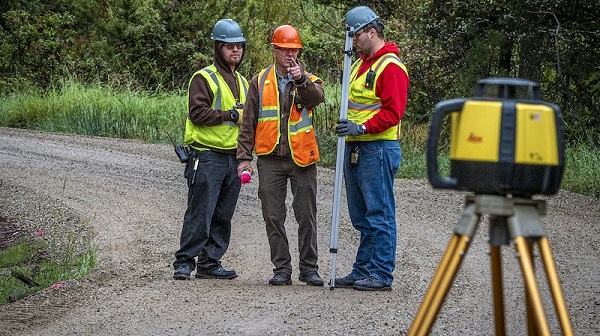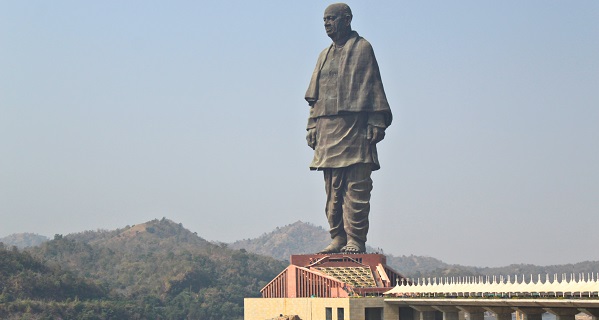
Table of Contents
Civil Eng.
Civil engineering is the branch of engineering which deals with designing, planning, maintaining and executing structural works like roads, bridges, dams, canals, buildings, power plants, sewerage system, aqueducts and other infrastructures.
Scope of civil engineering
Scope of civil engineering is very huge in world wide in private companies as well as in government sectors for planning, designing, maintenance, estimating, supervising and constructing buildings, roads, sewerage systems, bridges and other infrastructures.

Work of civil engineer
Civil engineer prepares plans and designs, start construction, maintain project, prepare cost estimates, survey the land, supervise the work, maintain workers, maintain quality of work, maintain project cost and work according to codes, rules, standards and regulations.
All works of civil engineer are listed below.
- Creating plans and blueprints
- Prepare cost estimates of project
- Determining costs
- Plan, design, and then test the structures
- Assessing environmental impacts and determining risk factors that may impact the project
- Maintain the project until its complete
- Designing the project, choosing best material for the project, and then working on the project.
- Collaboration and communication with other engineers, clients and professionals
- Maintain all worker’s safety and health at site
- Studying, evaluating, and investigating the land
- Understanding and accounting for health and safety, building and other engineering rules and regulations
- Remove hazardous structure
- Tendering the contracts and hiring contractors
- Performing technical and feasibility studies, surveys, using reports, plans, maps and related data
- Work according to standard codes, rules and regulations.
- Supervising and monitoring the construction of the infrastructure project.
Types of civil engineering
Civil engineering is a very broad branch, so it is divided into various sub-categories according to the types of works. So it is very important to understand all the types before entering into civil engineering.
All types are listed below.
Environmental engineering
Environmental engineering deals with water and air purification, wastewater management, waste disposal and recycling, air pollution, noise pollution, land pollution, environmental pollution, environmental impact and assessment and other purposes pertaining to human health and benefit.
Environmental engineering involves air purifications, water purifications, waste water purifications, treatment and distribution of drinking water, treatment and disposal of wastewater, cleanup of hazardous-waste sites, municipal solid waste management, control of air and noise pollution, environmental impact and assessment etc.
Civil and structural engineering
Civil and structural engineering deals with structural designs, rigidity of structures, strength and stability of structures, earthquake resistant structures, wind resistant structures and other environmental impact resistant structures.
For civil and structural engineering, knowledge of material science, solid mechanics, applied mechanics, applied physics and applied mathematics is very important.
Surveying in civil engineering
Surveying deal with plans, mapping, land survey, levelling of lands, topographic features, determining the relative position of different points related to others, determine the position of natural and man-made objects, GIS, Photogrammetry, Cadastral Surveying, geology, Digital Mapping, land boundaries, Cartography, remote sensing etc.

For surveying purpose various instruments are used like Theodolite, dumpy level, total station, chain and tape, Plane table, levelling, tacheometry, optical square, Prismatic compass, Alidade, Ranging rod etc.
Geotechnical engineering
Geotechnical engineering deals with study and behaviour of soil before construction and design of foundations, dams, retaining walls, study of geology, design of embankments, channels, bunds and tunnels etc.
Geotechnical engineers use their knowledge to determine properties and behaviour of soils and design foundation, dams, canals, embankments, bunds and tunnels according to properties of soil.
Civil and construction engineering
Civil and construction engineering deals with planning, creating, designing, estimating, maintaining, managing, supervising and constructing airports, highways, buildings, dams, bridges, canals and other infrastructures.
Civil and construction engineering mainly deal with large-scale construction projects like large buildings, large infrastructure project, dams, roads, bridges etc.
Public health engineering
Public health engineering deals with Water Supply Schemes, sanitation schemes, sewerage systems, removal and disposal of human waste, supply of safe potable water, manage solid waste and safeguard people from diseases and illnesses.
Transportation engineering
Transportation engineering deals with planning, designing, construction and management of public transport systems like road transport, rail transport, air transport, water transport etc.
Estimating and costing in civil engineering
Estimating and costing in civil engineering deals with predicting the cost of project before and after construction by various methods like detail estimate, approximate estimates, valuation after completion of projects etc.
Water resources engineering
Water resources engineering deals with Water Supply Schemes, sewerage systems, sanitation schemes, supply of safe potable water and safeguard people from diseases and illnesses by providing safe potable water.
Forensic engineering
Forensic engineering deals with analysis of structural and mechanical engineering failures, investigation of damaged or deteriorated structure, determine why it happened, repair and recovery of failures etc.
Civil engineering salary
The average salary of civil engineers in India is ₹38,000 per month and ₹450,000 annually per employee. Its also depends on posts and types of works. But, generally its ranges from ₹25,000-₹60,000 per month per employee and ₹300,000-₹750,000 annually.
The highest paid civil engineers posts are engineering manager, assistant engineer, material engineer, city engineer, senior civil engineer, geotechnical engineer, Director of engineering, Civil supervisor, Engineering project manager and structural engineers.
Civil engineering jobs
Civil engineers have various job opportunities in various fields. Civil engineers can work as a different-different posts in different categories in private companies as well as in public sector. Some of jobs are listed below.
- Structural Engineer
- Site Engineers
- Architectural Engineer
- Environmental Engineer
- Assistant Engineer
- City Engineer
- Surveyors
- Civil Engineer
- Construction Engineers
- Nuclear Engineer
- Civil Engineering Technicians
- Senior Engineer
- Division Leader and Head
- Geotechnical Engineers
- Project Engineer
- CAD Technician
- Architects
- Chief Engineer
- Deputy Engineer
Civil engineering government jobs
If you want to work for government sectors after civil engineer degree, you have various job opportunities like, Junior Engineer, Assistant Engineer, Deputy Engineer, Executive Engineer, Additional Assistant Engineer, City Engineer, Town Planner etc. For that you have to Pass the government exams which is conducted by state board or central board.
Civil engineering private job
If you want to make your career in private sectors after civil engineer degree, you have so many private jobs like Structural Engineer, Senior Engineer, Site Engineer, Junior Engineer, Construction Engineers, Surveyor, Project Engineer, Trainee Engineer etc.
Site engineer jobs
There are various site engineer jobs as a civil engineer like Geotechnical Engineer, Construction Engineer, Junior site supervisor, senior site supervisor, Surveyor, project manager, Soil engineer etc.
Diploma civil engineering jobs
After a diploma in civil engineering, You have various job opportunities like- Civil Engineer, Environment Engineer, Urban Planning Engineer, Junior Engineer, Surveyor, CAD Technician, Geotechnical Engineer, Construction Engineer, Civil Engineering Drafter, Structural Engineer, Civil Engineering Technologist, Site Engineer, etc.
Civil engineering jobs for freshers
Freshers civil engineers can start their career as a Site Engineer, Trainee Engineer, Junior Engineer, Surveyor, Draftman, CAD Technician, Assistant Engineer etc. They have various job opportunities in the field of civil works.
Online jobs for civil engineers from home
There are so many online jobs that civil engineers can do from home and make money online like,
- Interior designing
- Autocad planning and Designing
- Civil engineer blogs
- Online classes
- Civil start-up
Civil engineering subjects
For becoming a successful civil engineer you should have knowledge of all the subjects of civil engineering. Civil engineering is very broad branch, so there are so many subjects to study. For particular engineering, you should have deepest knowledge in that particular subject.
List of all subjects are given below.
- Structural engineering
- Environmental engineering
- Engineering drawing
- Surveying
- Geotechnical engineering
- Transportation engineering
- Construction engineering
- Fluid mechanics
- Hydraulic engineering
- Applied mechanics
- Materials Engineering
- Strength of materials
- Traffic engineering
- Engineering physics
- Engineering geology
- Water resources Engineering
- Construction management
- Foundation
- Soil mechanics
- Building material
- Solid mechanics
- Engineering mathematics
- Earthquake engineering
Companies for civil engineering
Civil engineers can start their career in both private companies and public sectors. For that you have to study about top civil companies in India before starting your career. For your information we have prepared a list of top companies in India.
- AECOM
- Tata Projects
- Punj Lloyd
- Stantec
- Essar Group
- Mott MacDonald
- Simplex
- Balfour Beatty
- TRC
- Nagarjuna Construction
- Sadbhav Engineering Limited
- Sobha
- Hindustan Construction Company
- L&T
- Afcons Infrastructure Limited
- Jaypee Group
- Bechtel
- Larsen & Toubro
- Arup
- Reliance Infrastructure Limited
- IVRCL LIMITED
- Skanska
- Gammon India Limited
- Vinci
Civil engineering courses
Civil Engineering is a very big branch and there are variety of courses available in which you want to start your career, like ITI draftsman, polytechnic course, Btech, Mtech, master courses etc.
All courses are listed below.
1. ITI draftsman civil
ITI draftsman civil is a short term course of 2-years in which you will learn basic engineering drawings, engineering sketches and plans. It consists 4 semesters in 2 years period. After that you will get ITI draftsman certificate.
2. AutoCAD civil engineering
AutoCAD is a computer-aided design (CAD) software which is developed by the Autodesk company. It is a commercial 2D and 3D drafting software which is used for several purposes like planning, designing, mapping etc. which is used by graphic designers, city planners, architects.
Now a days AutoCAD become a most popular course worldwide. To become a professional civil engineer, it is a very important to learn this program.
3. Civil engineering in polytechnic
Civil engineering in polytechnic is a 3 years certificate course which consists 6 semesters in which you will learn all basics of civil engineers. This course is also known as Diploma Course.
4. Btech in civil engineering
Btech in civil engineering is a 4 years Degree course which consists 8 semesters in which you will learn all about civil engineers. If you are choosing Btech course after Diploma course then it is of 3 years and 6 semesters.
5. Mtech civil engineering
Mtech civil engineering is a 2 years Master Degree course which consists 4 semesters in which you will learn all about one particular subject in deeply in which subject you want to become expert.
6. Msc masters of science in civil engineering
Msc masters of science in civil engineering is a 2 years Master Degree course which consists 4 semesters which provides advanced study and research on particular subjects like Construction Management, Environmental and Water Resources, Energy Resources Systems, Transportation, Regional Development, Structures, Geotechnical etc.
7. Masters in civil engineering
After degree course, there are variety of choice in Masters in civil engineering course like Hydraulics and Water Resources Engineering, Geo-informatics, Structural Engineering, Geotechnical Engineering, Infrastructure Engineering and Management, Transportation Engineering etc.
Institution of civil engineers
If you want to become civil engineers, you have various choice of Institutions, either government or a private institute. You can chose from where you want to complete your degree.
Here we have listed List of Best Civil engineering Colleges in India.
- Indian Institute of Technology
- Aryabhatta Institute of Engineering & Management
- Vellore Institute of Technology
- Delhi Technological University
- National Institute of Technology
- Anna University
- Birla Institute Of Technology And Science
- Coimbatore Institute of Technology
- Aryabhatta Knowledge University
- And Many more…..
Civil engineering computer programs
Before starting your career in civil, you should have basic knowledge of civil engineering computer programs. It is not required to learn all computer programs, but learn specific software for specific works in which field you are going to start your career.
List of all computer programs are given below.
- AutoCAD
- Autodesk Revit
- MicroStation
- Primavera
- HEC-HMS
- SketchUp
- HydroCAD
- Bentley Systems
- AllyCAD
- Abaqus
- EPANET
- StormCAD
- AutoCAD Civil 3D
- HEC-RAS
- SAP2000
- Microsoft Project
- Autodesk
- ArcGIS
- AutoTURN
- Microsoft Excel
- WaterCAD
- Plaxis
- STAAD Pro
- Civil 3D
Civil engineering Structures
There are several types of famous civil engineering structures in the world, including buildings, dams, bridges, tunnels, towers and many more. All civil engineers and workers put their complete efforts to make them unique and most famous structure in the world.

Here we have listed most famous Civil engineering structures in the world.
- Statue of Unity
- Golden Gate Bridge
- Channel Tunnel
- Lake Pontchartrain Causeway
- Akashi-Kaikyo Bridge
- Jiaozhou Bay Bridge
- Hoover Dam
- Brooklyn Bridge
- Colosseum
- PRESA DE ITAIPU
- Aqueduct of Segovia
- Bailong Elevator
- Aqueduct of Segovia
- Eiffel Tower
- Kingdom Tower
- Danyang–Kunshan Grand Bridge
- Hangzhou Bay Bridge
- Hong Kong-Zhuhai-Macao Bridge
- Jiaozhou Bay Bridge
- Capital Gate
- Viaduc de Millau
- Washington Monument
- Sydney Opera House
- Three Gorges Dam
FAQs :
What is civil engineering ?
Civil engineering is the branch of engineering which deals with designing, maintaining, planning and executing structural works like roads, buildings, power plants, bridges, dams, canals, aqueducts, sewerage system and other infrastructures.
Civil engineer income ?
The average income of civil engineers per employee in India is ₹35,000 per month and ₹470,000 annually. Its also depends on civil engineers position and types of works. But, generally its ranges from ₹27,000-₹65,000 per month and ₹350,000-₹800,000 annually per employee.
What is surveying in civil engineering ?
Surveying deal with plans, mapping, determine the position of natural and man-made objects, land survey, Cadastral Surveying, geology, topographic features, determining the relative position of different points related to others, GIS, land boundaries, Cartography, Photogrammetry, Digital Mapping, levelling of lands, remote sensing etc.
What do civil engineers do ?
Civil engineer prepares plans and designs, survey the land, start construction, maintain quality of work, maintain project, maintain project cost, prepare cost estimates, supervise the work, maintain workers and work according to codes, standards, rules and regulations.
Civil engineer how many years ?
Civil engineering ITI course is a 2 year program, Diploma course is a 3 years program, Degree course is a 4 years program and Master course is a 2 years program. If you are choosing Degree course after Diploma course then it is of 3 years. If you are choosing Diploma course after ITI course then it is of 2 years.
Environmental engineer salaries ?
The average salaries of Environmental engineers in India is per month ₹43,000 and annually ₹550,000. Generally its ranges from ₹38,000-₹78,000 per month and annually ₹450,000-₹850,000. Its depends on types of work and also position of environmental engineers.
Salary of civil engineer per month ?
The average salary of civil engineers in India is per month ₹40,000 and ₹500,000 annually per employee. Its varies from post to post and also depends on types of works. But, generally its ranges from ₹30,000-₹80,000 per month and ₹400,000-₹750,000 annually.
How to become a civil engineer after 12th ?
After completing your 12th science with Physics, Chemistry, and Mathematics, you can choose Degree course of Civil Engineering which is of 4 years program which consists 8 semesters. In this program you will get complete knowledge of all the subject of civil engineers.
Civil engineering work from home jobs ?
If you have civil engineer degree and you want to work from home, then you have various of jobs like Autocad planning, online classes, civil engineer blogs, interior designing and you can also start your civil start-up from home and you can make more money from home.
Job opportunities for diploma in civil engineering ?
After a diploma in civil engineering, students have various job opportunities like- Civil Engineer, Geotechnical Engineer, Civil Engineering Technologist, Project Engineer, Construction Engineer, Draftman, Assistant Engineer, Civil Engineering Drafter, CAD Technician, Structural Engineer, Site Engineer, Environment Engineer, Urban Planning Engineer, etc.
Also Visit :
➤ Download our app for latest updates
➤ Civil Engineering Study Materials
➤ Civil Engineering MCQs Practice
➤ Fluid Mechanics MCQs Practice
➤ Building Materials MCQs Practice
➤ Building Construction MCQs Practice
➤ Soil Mechanics MCQs Practice
➤ Highway Engineering MCQs Practice
